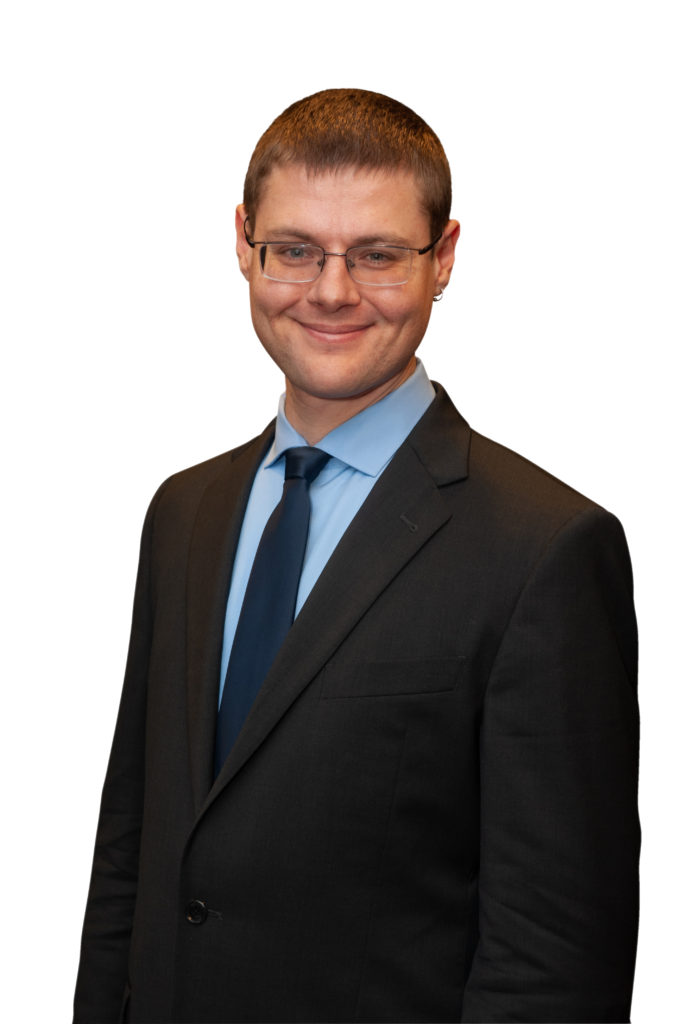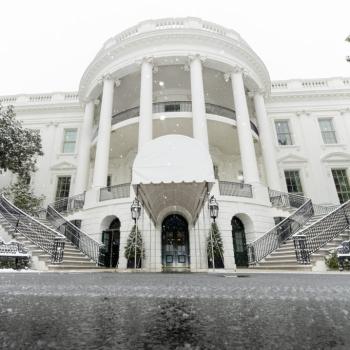
Has the traditional office become obsolete? This provocative question lingers in the minds of forward-thinking business leaders and employees worldwide. In an enlightening interview with Tony Jamous, CEO of Oyster, a global employment platform, he illuminated the merits of remote work, revealing a future where remote work reigns supreme for the benefit of workers, businesses, and our planet.
A New Era of Work: Flexibility, Freedom, and Fulfillment
Tony Jamous articulates a compelling vision of the future of work – one that transcends geographical boundaries and traditional office structures. This new paradigm pivots on the axis of flexibility, a term that has often been tossed around in corporate circles but seldom realized to its full potential. However, in Jamous’s vision, flexibility is not a mere corporate buzzword; it is the cornerstone of a revolutionary work culture.
Imagine a world where the rigid 9-to-5 grind is replaced with a fluid schedule that adapts to individual needs and preferences. In this world, employees are no longer tethered to a single location. They have the freedom to choose their work environment, be it a serene mountain retreat or a bustling seaside town. This choice is not just about the physical space but about finding an environment that nurtures creativity, productivity, and personal well-being.
This shift extends beyond mere convenience. It is a transformative approach that fundamentally alters our understanding of work-life balance. The traditional model often forces a choice between career progression and personal life, but Jamous’s vision presents a third path: a synergy of both. This integration empowers individuals to manage their professional responsibilities alongside their personal aspirations without the guilt that often accompanies leaving the office for a family event or personal errand.
Moreover, this approach dismantles the long-standing myth that productivity is contingent on physical presence in a traditional office setting. It recognizes that inspiration and efficiency can flourish in diverse environments. By breaking free from the physical constraints of conventional office spaces, individuals are liberated to explore work in settings that truly resonate with them, leading to heightened creativity and innovation.
Jamous’s vision of flexibility is a clarion call for a shift in mindset from viewing work as a place you go to as something you do. This perspective acknowledges that work can be seamlessly integrated into our lives, enhancing both our professional output and personal satisfaction. It’s a future where the work environment evolves to fit the worker, not the other way around.
This concept of flexibility, freedom, and fulfillment in the workplace is more than an idealistic dream. It is a viable, practical model that challenges the status quo and paves the way for a more holistic, human-centered approach to work. In embracing this vision, we open the door to a future where work is not just a means to an end but a fulfilling part of the journey itself.
The Business Case: Engagement, Culture, and Global Talent
The transformative power of remote work extends far beyond individual benefits, heralding a new chapter in business efficiency and cultural diversity, a narrative profoundly embodied by Oyster’s success. As a vanguard in the remote work domain, Oyster’s remarkable achievement in being recognized as a top technology company is not a stroke of luck but a direct result of embracing a remote-first culture.
Oyster’s team, spread across 70 countries, is a living example of the rich tapestry of global talent that remote work can harness. This diversity is not merely a matter of statistics or corporate social responsibility checkboxes. Instead, it represents a strategic advantage that transcends traditional business models. In a world where businesses often struggle with homogeneity in thought and experience, a globally diverse team brings a plethora of perspectives, ideas, and solutions, enriching the company’s problem-solving capabilities and fostering innovation.
This diversity goes hand in hand with enhanced engagement. Employees from various backgrounds and cultures contribute unique insights and experiences, creating a dynamic work environment that is both intellectually stimulating and culturally enriching. This diversity fuels creativity, leading to innovative solutions and services that cater to a broader audience.
Moreover, the access to a global talent pool is a strategic response to the talent shortages plaguing many Western countries. As per Korn Ferry’s study, the current talent gap in knowledge-based sectors could result in a staggering $8.5 trillion in unrealized annual revenues by 2030. Remote work, by erasing geographical barriers, empowers businesses to tap into a reservoir of global talent, mitigating these shortages. This is not just about filling positions; it’s about finding the best minds, wherever they may be, and leveraging their skills and knowledge to drive business growth and competitiveness.
Furthermore, remote work aligns with the evolving preferences of the modern workforce. The emerging generation of professionals values flexibility, work-life integration, and the opportunity to engage in meaningful work without geographical constraints. Companies that offer remote work options are therefore more likely to attract top-tier talent, who prioritize these values.
The economic implications of this shift are substantial. By tapping into global talent, businesses can optimize operational costs, accessing high-quality skills at competitive rates. This global reach also enables companies to operate across multiple time zones, offering round-the-clock services and support, thereby enhancing customer experience and satisfaction.
Sustainability: A Greener Future
Jamous doesn’t shy away from addressing the elephant in the room – the environmental impact of traditional office work. Remote work offers a potent solution to this growing concern.
The daily commute to and from the office constitutes a major component of an individual’s carbon footprint. By eliminating the need for daily travel to a central office location, remote work significantly reduces greenhouse gas emissions. According to studies, this reduction can be as much as 50%, a figure that cannot be ignored in the current environmental context. This decrease in emissions is not just about fewer cars on the road; it extends to reduced need for public transport, which, despite being greener than individual vehicles, still contributes to overall emissions.
Moreover, remote work contributes to environmental sustainability in ways that go beyond just reducing commuting emissions. Office buildings are substantial consumers of energy, from lighting to heating and air conditioning. A dispersed workforce, working from home or local co-working spaces, translates to less energy consumption on a grand scale. This reduction in energy demand from office buildings can significantly lower the carbon footprint associated with corporate operations.
Furthermore, remote work encourages a more sustainable lifestyle overall. Employees working from home are more likely to engage in environmentally friendly practices, such as reduced paper usage, less reliance on single-use plastics commonly found in office environments, and more sustainable choices in food and other consumables.
This shift towards remote work aligns with the broader sustainability goals espoused by many companies. In an era where businesses are increasingly held accountable for their environmental impact, transitioning to remote work models is not just a matter of operational efficiency but of corporate responsibility. Companies that embrace remote work are effectively contributing to broader efforts to combat climate change and promote environmental stewardship.
Jamous rightly points out the contradiction in companies that publicly commit to sustainability yet insist on a return to traditional office models. This stance not only undermines their sustainability claims but also misses an opportunity to be part of a larger, global solution to environmental challenges.
Embracing remote work, therefore, is more than a business strategy or a response to employee preferences. It is a commitment to environmental stewardship, a recognition that businesses have a role to play in preserving our planet. This approach is not just beneficial for the environment; it also resonates with customers and employees who increasingly prioritize sustainability in their personal and professional choices. In this light, remote work is not just a trend but a crucial component of a sustainable future.
Addressing Skepticism
A common concern among traditional business leaders is the perceived lack of loyalty in remote employees. They fear that remote work dilutes the company-first ethos. Jamous challenges this notion, arguing that forcing employees into a life of sacrifice for work is an outdated, almost draconian, concept. The loyalty of employees who feel valued and cared for is far stronger than that of those coerced into a rigid structure. Remote work champions a setting where employee well-being is paramount, leading to greater retention, engagement, and ultimately, loyalty.
Another source of skepticism among traditional business leaders: how does one cultivate a robust company culture remotely? Jamous advocates for intentionality in defining culture, shifting focus from physical office perks to how teams communicate, collaborate, and measure success. Oyster’s “follow the sun” approach exemplifies this, ensuring global inclusivity. Adopting frameworks like OKRs (Objectives and Key Results) anchors teams to clear goals, fostering a sense of purpose and direction irrespective of physical location.
In my own consulting work, guiding companies in shaping their future of work, I often confront skepticism about shifting towards remote work. This skepticism usually originates from traditional work models, with concerns about productivity, maintaining company culture, and employee engagement in remote settings. To tackle these doubts, I employ a multifaceted approach.
Firstly, I leverage case studies and data from successful remote work implementations, like Oyster, to demonstrate the practical benefits and dispel misconceptions about productivity and efficiency. Addressing cultural concerns is crucial, so I help companies develop strategies for effective communication and collaboration that sustain a vibrant company culture remotely.
Introducing technological tools that facilitate remote collaboration is another key strategy. Demonstrating how these tools can be integrated into existing workflows helps alleviate concerns about team cohesion and management. I also emphasize the need for tailored strategies that align with each company’s unique needs, rather than a one-size-fits-all approach. This customization fosters trust and increases the likelihood of successful adoption.
For more resistant organizations, I recommend pilot programs to allow them to experience the benefits of remote work incrementally. Encouraging open dialogues within companies is also vital to address any reservations directly and ensure that the transition to remote work is a collaborative, inclusive process.
Lastly, I highlight the broader benefits of remote work, such as environmental sustainability, access to global talent, and improved work-life balance, to present it not just as a business strategy but as a step towards a more sustainable and balanced future. By combining evidence-based arguments, strategic planning, and empathetic understanding, I guide companies to see beyond their initial skepticism and recognize the potential of remote work.
The Future of Work: A World Without Boundaries
Looking ahead, Jamous envisions a work environment not confined by location. The best talent will gravitate towards companies offering flexibility and respect for personal life choices. Remote companies, adept at managing distributed workforces, will emerge as leaders, attracting top talent worldwide. This shift might be gradual, but the trajectory is clear – the future belongs to those who embrace the remote work revolution.
The dialogue with Tony Jamous unveils a compelling argument for remote work as a catalyst for personal freedom, business innovation, and environmental sustainability. It’s a holistic approach that resonates with the values and aspirations of modern workers and visionary companies alike. As we navigate this transformative era, the adoption of remote work may well become the benchmark for progressive, successful businesses in a world striving for balance, inclusivity, and sustainability.
Key Take-Away
Remote work emphasizes adaptable schedules and environments, fostering creativity, productivity, and improved work-life balance…>Click to tweet
Image credit: Andrea Piacquadio/pexels
Dr. Gleb Tsipursky was named “Office Whisperer” by The New York Times for helping leaders overcome frustrations with hybrid work and Generative AI. He serves as the CEO of the future-of-work consultancy Disaster Avoidance Experts. Dr. Gleb wrote seven best-selling books, and his two most recent ones are Returning to the Office and Leading Hybrid and Remote Teams and ChatGPT for Thought Leaders and Content Creators: Unlocking the Potential of Generative AI for Innovative and Effective Content Creation. His cutting-edge thought leadership was featured in over 650 articles and 550 interviews in Harvard Business Review, Inc. Magazine, USA Today, CBS News, Fox News, Time, Business Insider, Fortune, The New York Times, and elsewhere. His writing was translated into Chinese, Spanish, Russian, Polish, Korean, French, Vietnamese, German, and other languages. His expertise comes from over 20 years of consulting, coaching, and speaking and training for Fortune 500 companies from Aflac to Xerox. It also comes from over 15 years in academia as a behavioral scientist, with 8 years as a lecturer at UNC-Chapel Hill and 7 years as a professor at Ohio State. A proud Ukrainian American, Dr. Gleb lives in Columbus, Ohio.














